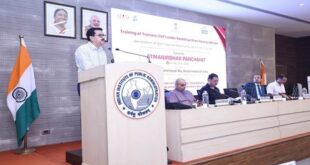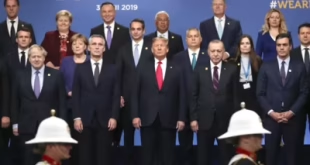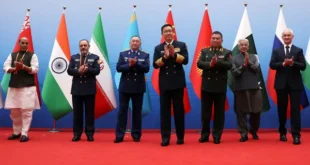- According to a recent report published in the SIPRI Yearbook 2021, the number of nuclear warheads which are ready and deployed have increased globally.
- The SIPRI Yearbook is released by the Stockholm International Peace Research Institute (SIPRI) which researches international armament and conflict.
- The SIPRI “Yearbook 2021” assesses the current state of armaments, disarmament and international security.
Important points:
- The nine nuclear armed states are: US, Russia, the U.K., France, China, India, Pakistan, Israel and North Korea.
- These countries together possessed an estimated 13,080 nuclear weapons at the start of 2021.
- Russia and the US together possessed over 90% of global nuclear weapons and have extensive and expensive modernisation programmes under way.
- Both the US and Russia have approved the extension of the New START treaty.
- The Treaty is the last remaining nuclear Russia-US arms control treaty which expired in February 2021.
- China’s nuclear arsenal consisted of 350 warheads up from 320 at the start of 2020.
- China is in the middle of a significant modernisation and expansion of its nuclear weapon inventory.
- India possessed an estimated 156 nuclear warheads at the start of 2021 compared to 150 at the start of last year, while Pakistan had 165 warheads, up from 160 in 2020.
- India and Pakistan are seeking new technologies and capabilities that dangerously undermine each other’s defence under the nuclear threshold.
- Low Levels of Transparency: The availability of reliable information on the status of the nuclear arsenals and capabilities of the nuclear-armed states vary considerably.
- The growth in total spending in 2020 was largely influenced by expenditure patterns in the United States and China (first and second largest spenders respectively).
- India’s spending of USD 72.9 billion, an increase of 2.1% in 2020, ranked it as the third highest spender in the world.
Nuclear Weapons
- Nuclear weapon is a device designed to release energy in an explosive manner as a result of nuclear fission, nuclear fusion, or a combination of the two.
- Fission weapons are commonly referred to as atomic bombs, and fusion weapons are referred to as thermonuclear bombs or, more commonly, hydrogen bombs.
- These have been used in the bombings of Hiroshima and Nagasaki in 1945.
- Treaties Preventing Nuclear Proliferation and Testing
- The Treaty on the Non-Proliferation of Nuclear Weapons (NPT).
- The Treaty Banning Nuclear Weapon Tests In The Atmosphere, In Outer Space And Under Water, also known as the Partial Test Ban Treaty (PTBT).
- The Comprehensive Nuclear-Test-Ban Treaty (CTBT) was signed in 1996 but has yet to enter into force.
- The Treaty on the Prohibition of Nuclear Weapons (TPNW), which will enter into force on 22nd January 2021.
SOURCE: THE HINDU,THE ECONOMIC TIMES,MINT
 Chinmaya IAS Academy – Current Affairs Chinmaya IAS Academy – Current Affairs
Chinmaya IAS Academy – Current Affairs Chinmaya IAS Academy – Current Affairs



